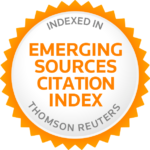Volume 12 Issue 12
FREQUENCY OF COGNITIVE IMPAIRMENT IN PATIENTS WITH OBSESSIVE COMPULSIVE DISORDER (OCD) PRESENTING IN TERTIARY CARE HOSPITAL OF PAKISTAN
1Dr. Fahaddis Ahmad Rana, 2Dr. Hajra Tariq, 3Dr. Mahnoor Irshad, 4Dr. Benazir Javed, 5Dr. Sufian Mehboob, 6Dr. Danish Anwar Jagial
Services Hospital, Lahore
Abstract
Background: A Study published in Journal of Anxiety Disorder states that previous research on obsessive-compulsive disorder has consistently found cognitive impairments in the domains of executive and nonverbal (memory) functioning , particularly in patients with comorbid depressive symptoms.⁷ Results of a meta-analysis conducted in 2014 showed that patients with OCD were significantly impaired in tasks that measured visuospatial memory, executive function, verbal memory and verbal fluency, whereas auditory attention was preserved in these individuals. The largest effect size was found in the ability to recall complex visual stimuli.
Aim: To assess the frequency of cognitive impairment in patients with OCD presenting in tertiary care hospital of Pakistan.
Materials and Methods: Study Design is Cross sectional study.
Study Setting are outpatient department of Psychiatry Unit, Services Hospital, Lahore.
Duration is 6 months after approval of synopsis.
Sample Size is Taking expected percentage of cognitive impairment among patients having OCD as 19%, with confidence interval at 95% with 7% margin of error, the calculated sample size will be 150.
Results: A total of 150 patients diagnosed with obsessive-compulsive disorder (OCD) were included in the study. The mean age of participants was 34.6 ± 8.9 years, with a range of 18 to 50 years. Among the participants, 87 (58%) were male, and 63 (42%) were female.
Conclusion: The present study examined the frequency of cognitive impairment in patients with obsessive-compulsive disorder (OCD) presenting at a tertiary care hospital in Pakistan. The findings indicated that a significant proportion of patients exhibited cognitive deficits, particularly in executive functioning, memory, and attention. These impairments were consistent with previous research suggesting that OCD is associated with neurocognitive dysfunctions. Factors such as the severity and duration of OCD symptoms appeared to influence cognitive decline. Patients with longer disease duration and higher symptom severity demonstrated greater deficits in cognitive performance.



